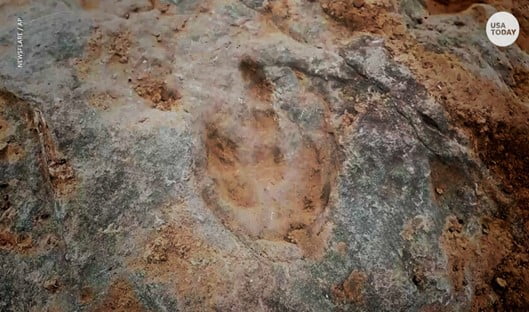Geography
In news: Scientists have discovered over 4,300 dinosaur footprints in Hebei province of Zhangjiakou in northern China.
- This is the largest number of footprint fossils found in one spot in the country.
- The footprints reportedly show four different dinosaur species, one of which might be undiscovered.
- The footprints were made between the Jurassic and Cretaceous ages, around 150 million years ago.
Dinosaur footprints in China: the discovery and its importance
- The largest number of dinosaur footprint fossils located in northern China, these cover an area of 9,000 square metres.
- The report states that the footprints belong to herbivores and carnivores dinosaurs; while the former could reach lengths of nearly 15 metres, the latter was four to five metres.
- Scientists believe the area may have attracted dinosaurs due to the availability of water and trees at the time.

How did the dinosaur footprints become fossils?
- Preserved footprints, also known as ichnites, are trace fossils that have survived millions of years.
- These are found in earthen materials that were soft enough to form the foot impression and hard enough to retain it.
- Over time, the material dried, hardened, and was covered with layers of sediment, helping the impression become fossilised.
- In numerous instances, soil erosion is now bringing them to the surface.
- Dinosaur footprints have been discovered across the world.
- In India, in 2014, footprints dating back 200-million-years were found in Jaisalmer, Rajasthan.
Source: Indianexpress











